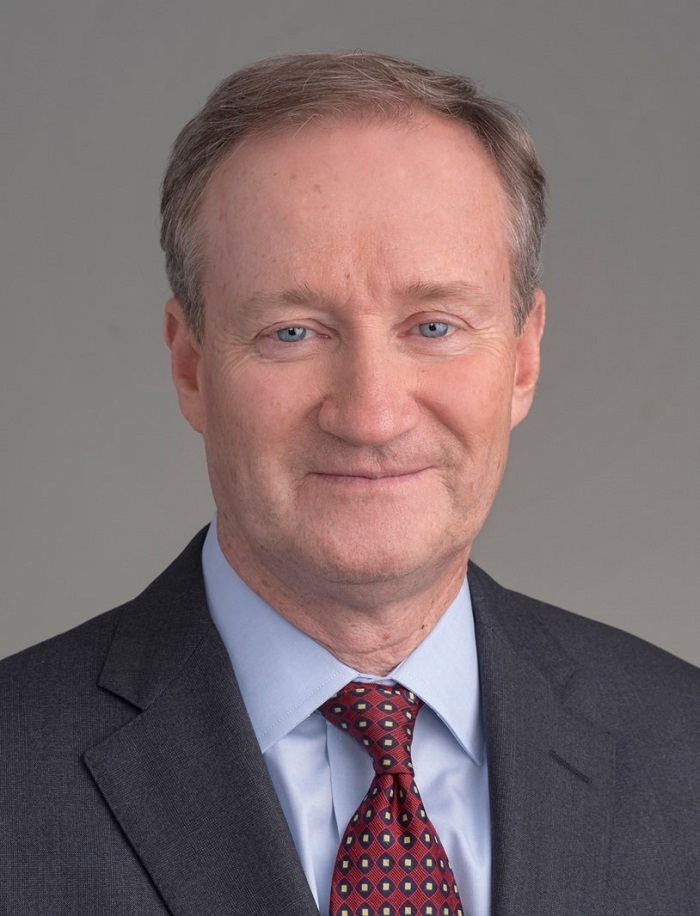Like many industries, the world of financial services (FS) has evolved significantly over recent years, says William Finnegan, managing director, financial services marketing at Seismic.

Several trends have converged to introduce new levels of competition and complexity for FS organisations to deal with - as well as opportunities for those brave enough to adapt.
For example, an ageing population and rising levels of wealth are driving substantial growth in the number and size of inheritances. In the UK alone, an estimated £5.5 trillion of wealth will pass between the generations - specifically from Baby Boomers to Millennials and Generation Z - within the next thirty years in what has been dubbed ‘the Great Wealth Transfer'.
In the US, $68 trillion of wealth is expected to change hands over the next 25 years.
At the same time, Covid-19 has accelerated the shift to digital interactions. Millennials and Generation Z in particular expect wealth managers and financial advisors to engage and interact with them across digital touchpoints with dexterity and speed - and are increasingly quick to move to a competitor if their expectations aren't met.
As a result, wealth managers are having to rethink how they use technology and data-driven solutions. They need to engage these generations with differentiated and personalised experiences across digital channels like social media and provide interactive experiences wherever possible. The race to win over the wealth holders of tomorrow is on.
A demographic destiny
For many years, millennials have been one of the poorest generations in history - with less savings and more debt than previous generations.
The average net worth of millennials is considerably lower than that of their parents, with several factors such as the rising cost of living hindering their ability to grow wealth.
However, thanks to the widespread transition of wealth that is currently taking place, the demographics of wealth ownership are changing. But what does this actually mean? In short, FS firms need to know what makes these younger clients tick.
Millennials and Generation Z have very different expectations of financial advisors in terms of service delivery and experience. They want to deal with wealth managers in different ways - generally characterised by more dynamic interactions, personal connections and online communication.
And, thanks to the personalised service delivered by the likes of Amazon, Netflix and Spotify, they expect to receive a tailored experience. If FS firms fail to replicate this consumer experience, they will lose out to broader tech firms that already have the infrastructure in place to deliver superior digital experiences.
Recognising and adjusting to these needs is where digital tools and platforms have vital roles to play. These tools can arm wealth managers with the insights and guidance they need to build meaningful relationships with younger clients in today's crowded digital landscape. Most importantly, digital platforms can help wealth managers build trust with the digitally native generations that are set to inherit their parents' wealth over the coming years.
Rise of the digital advisor
Retaining existing clients and adding new ones in the next era of financial advice is all about the experience. To preserve their reputations as experts and build effective long-term relationships, advisors now must reach out to clients in the right online spaces with the right content at the right times.
This content must also be personalised to each client's specific needs and situation. And not just the title page. Content must also incorporate clients' stated concerns within the offered solutions.
Digital platforms can significantly streamline the personalisation process. Managing all the firm's collateral through one integrated system, for example, means that many of the manual tasks needed to create valuable personalised content can be automated. Technology enables wealth managers and financial advisors to quickly tailor their outreach to their clients and, most importantly, deliver it to where the clients are without having to worry about formatting or compliance issues - both of which are managed through automation.
Artificial intelligence (AI) can take things a step further, enabling true multi-channel engagement and bespoke interactions. AI equips teams with the recommendations needed to engage clients in a way that stands out from the competition, such as delivering compelling, customised interactive content in a compliant fashion across multiple digital channels. This helps build trust, as clients will see that advisors are authentic thought leaders who recognise their preferences and understand their particular circumstance.
What's more, client engagement analytics can provide tangible insights into the effectiveness of content, showing how clients are engaging with it, and what content is and isn't working. This gives advisors the ability to analyse their impact and quickly alter their approach - such as introducing more dynamic content - if required. This all improves effectiveness while delivering a superior client experience.
History has shown that the best wealth managers and financial advisors are the ones who are constantly evolving. Industry shifts - such as the Great Wealth Transfer - are presenting significant opportunities and will do so for years to come. Only those who are prepared to adapt to today's demographic swings will be able to capitalise on them.
That's why embracing digital tools and data is key. Technology enables differentiated, hyper-personalised services that build deeper relationships - while still ensuring governance and compliance at an individual level.
Most importantly, it empowers FS professionals to deliver the compelling digital-first experience that today's ascendant generations now expect. The rules of engagement are evolving - it's time for FS firms to rewrite them to ensure long-term success.
By William Finnegan, managing director, Financial Services Marketing at Seismic





